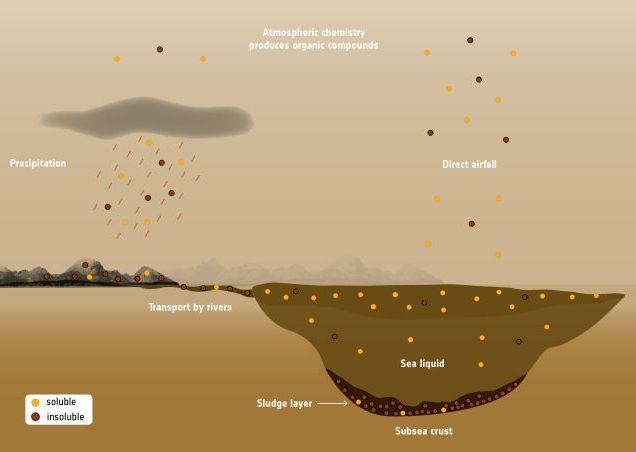The moon has three large seas and a number of smaller lakes connected by rivers and rivulets located in its northern hemisphere, and one large lake in the south. NASA researchers previously believed the liquid to be ethane, which is produced when “sunlight breaks methane molecules apart”, said Alice Le Gall, a member of the Cassini radar team who led the study into the makeup of the moon’s liquid reservoirs.
Using radar observations of the heat given off by Ligeia Mare, as well as data from a 2013 experiment that bounced radio signals off of the sea, the team determined the compositions of the liquid sea and the sea bed by separating each of their contributions to the sea’s observed temperature.
This image from Cassini shows Ligeia Mare, the second largest known body of liquid on Titan.
